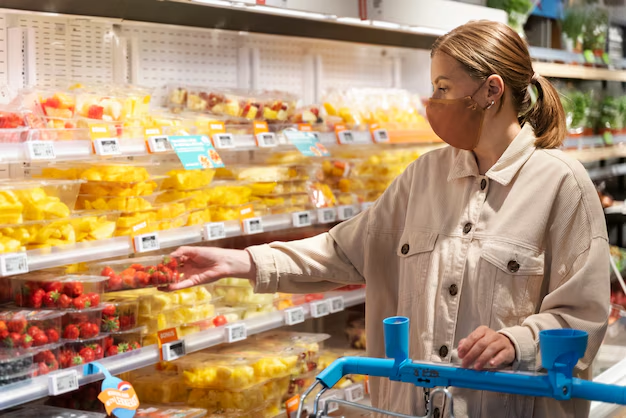Why Is Your Refrigerator Freezing Everything?
Have you ever reached into your refrigerator expecting to grab a crisp lettuce leaf but instead found a frosty, frozen mass? It’s a common household dilemma: a refrigerator that suddenly starts freezing everything in sight. While this can be frustrating, understanding the potential reasons why it happens is the first step to resolving the issue permanently. By exploring the root causes and solutions, you can save time, money, and food from going to waste.
Understanding How Your Refrigerator Works
Before diving into why your refrigerator might be freezing your food, it’s helpful to know how it is designed to work. A refrigerator functions by removing heat from the interior and dissipating it outside to keep your perishables cold but not frozen. The temperature settings, the thermostat, and the cooling mechanisms all play critical roles in maintaining the perfect environment for your food.
Basic Components
- Thermostat: Regulates the temperature inside the fridge by controlling the cooling cycle.
- Evaporator Coils: Absorb heat from the refrigerator's interior.
- Condenser Coils: Disperse heat to the outside environment.
- Fan: Circulates cold air throughout the interior to ensure even cooling.
Common Reasons Why Your Refrigerator Might Freeze
Incorrect Thermostat Setting
One of the simplest reasons your refrigerator might be freezing is because the thermostat is set too low. Refrigerators usually have an ideal temperature range, around 37 degrees Fahrenheit (3 degrees Celsius), that you should aim for. A setting below this range can cause food and liquids to freeze inadvertently.
Solution
- Adjust the thermostat to a slightly higher temperature.
- Allow 24 hours for the interior temperature to stabilize after adjustments.
Blocked Air Vents
Airflow is essential for proper cooling. When the air vents are blocked, parts of the refrigerator might become colder than intended, leading to freezing. This can be due to food items stored too close to these vents.
Solution
- Rearrange items to ensure unrestricted airflow.
- Keep larger items away from vents and avoid overpacking your refrigerator.
Faulty Thermostat
A malfunctioning thermostat can misread the temperature and cause the cooling system to keep operating even when conditions are optimal, leading to freezing.
Solution
- Test the thermostat by adjusting the settings and observing if the refrigerator responds correctly.
- If the thermostat is unresponsive, consider a replacement.
Damaged Door Seals
When the door seals (also known as gaskets) are compromised, outside air can seep into the refrigerator. This can cause the compressor to work overtime, resulting in frozen food.
Solution
- Check the seals for cracks, gaps, or tears.
- Clean the seals and replace them if they are damaged.
Advanced Issues Leading to Freezing
Defrost System Malfunction
The defrost system prevents the buildup of frost on the evaporator coils. If it fails, frost accumulation can lead to inconsistent temperatures within the refrigerator.
Solution
- Inspect and test defrost components such as the timer, heater, and thermostat.
- Seek professional repair if these components appear faulty.
Cooler Fans or Temperature Sensors
If the fans aren’t circulating air efficiently, or if the temperature sensors are providing incorrect readings, the refrigerator compartments can become too cold.
Solution
- Listen for unusual noises which might indicate fan problems.
- Replace faulty sensors to ensure accurate temperature readings.
Cold Spots Caused by Poor Insulation
In some refrigerators, manufacturing defects or wear and tear can lead to insulation problems, creating cold spots where food may freeze.
Solution
- Identify patterns or spots where freezing occurs, indicating potential insulation issues.
- Consult with a technician if you suspect structural problems.
Preventive Measures and Maintenance Tips
Prevention is often better than needing to find a cure. Regular maintenance and careful use can minimize the chances of your refrigerator freezing up.
Regular Maintenance
- Clean the Coils: Dusty or dirty coils can impair cooling efficiency, leading to uneven temperatures.
- Inspect the Door Seals: Regularly check and clean the seals to ensure proper closure.
- Defrost the Freezer: If your fridge isn't frost-free, periodic manual defrosting can help.
Optimize Storage
- Avoid overcrowding to allow for smooth air circulation.
- Prioritize space for efficient cooling near vents.
Energy Considerations
A refrigerator that works overtime can also increase your energy bills. By ensuring it functions efficiently, you not only prevent freezing but also contribute to energy savings.
Key Takeaways 📝
Here’s a quick summary to help you troubleshoot and prevent future issues with your refrigerator:
- Check Settings: Ensure the thermostat is set to the recommended temperature.
- Maintain Airflow: Keep vents clear to promote even cooling.
- Inspect Components: Regularly check seals, the thermostat, and the defrost system.
- Regular Cleaning: Maintain condenser and evaporator coils for peak performance.
- Storage Strategy: Avoid blocking vents and monitor the fridge for efficiency.
Managing your refrigerator effectively involves periodic maintenance and mindful usage. By understanding the common causes of unintentional freezing, you can easily take proactive steps to maintain your appliance in optimal condition. This not only saves food but enhances the longevity and performance of your refrigerator.
Understanding and applying these insights can help transform your refrigeration problems into manageable maintenance routines, keeping your kitchen running smoothly and efficiently.

